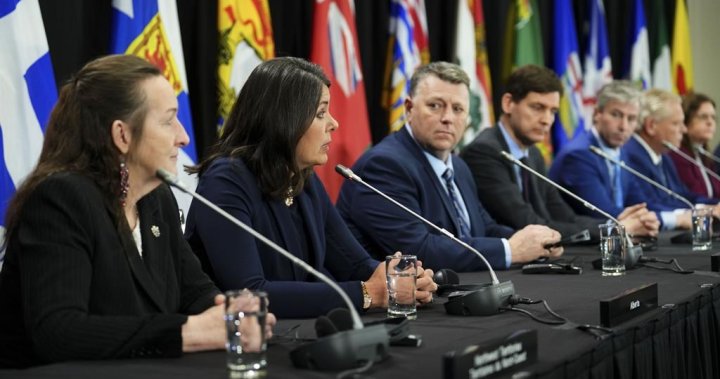
Next steps on new health-care deal tops agenda as premiers meet in Winnipeg
Global News
The premiers are expected to publicly discuss how they plan to deal with the health crisis at the conclusion of their meetings on Wednesday.
The last time all of Canada’s premiers sat down around the same table, their attention was focused on getting Ottawa to pay more to fix the understaffed, hospitals, shuttered emergency rooms, surgical backlogs and health-worker shortages threatening the viability of their health systems.
When they sit down in Winnipeg for their annual summer gathering this week, the attention will turn more to how to use the new money Ottawa has now promised.
After two years of provincial pleading and sabre-rattling for a new health-care deal, Prime Minister Justin Trudeau finally put new money on the table at a first ministers’ meeting in Ottawa in February. That $46 billion-deal fell far short of what provinces had asked for but they were left with little choice but to accept it.
Dr. Kathleen Ross, the president-elect of the Canadian Medical Association, said health must remain at the top of the agenda.
“We are really on the peak of our challenges at the moment,” Ross said in an interview.
“We have to change how we are managing and delivering health care in Canada.”
Health care is expected to dominate the first day of the three-day meeting. Economic issues and affordability are also on the agenda.
Trudeau’s new health deal includes an increase to the annual federal health transfers — which provinces use to help pay for their health care systems — as well as money for still-to-be-negotiated one-on-one deals tailored to each province and territory to address their specific needs.

A new report from the Angus Reid Institute shows that Saskatchewan residents are struggling financially or feel they’re in uncomfortable positions. Experts say it’s due to the high cost of living and stagnant wages. Katherine Ludwig breaks down the report and talks with experts about the reasons behind the struggle.










